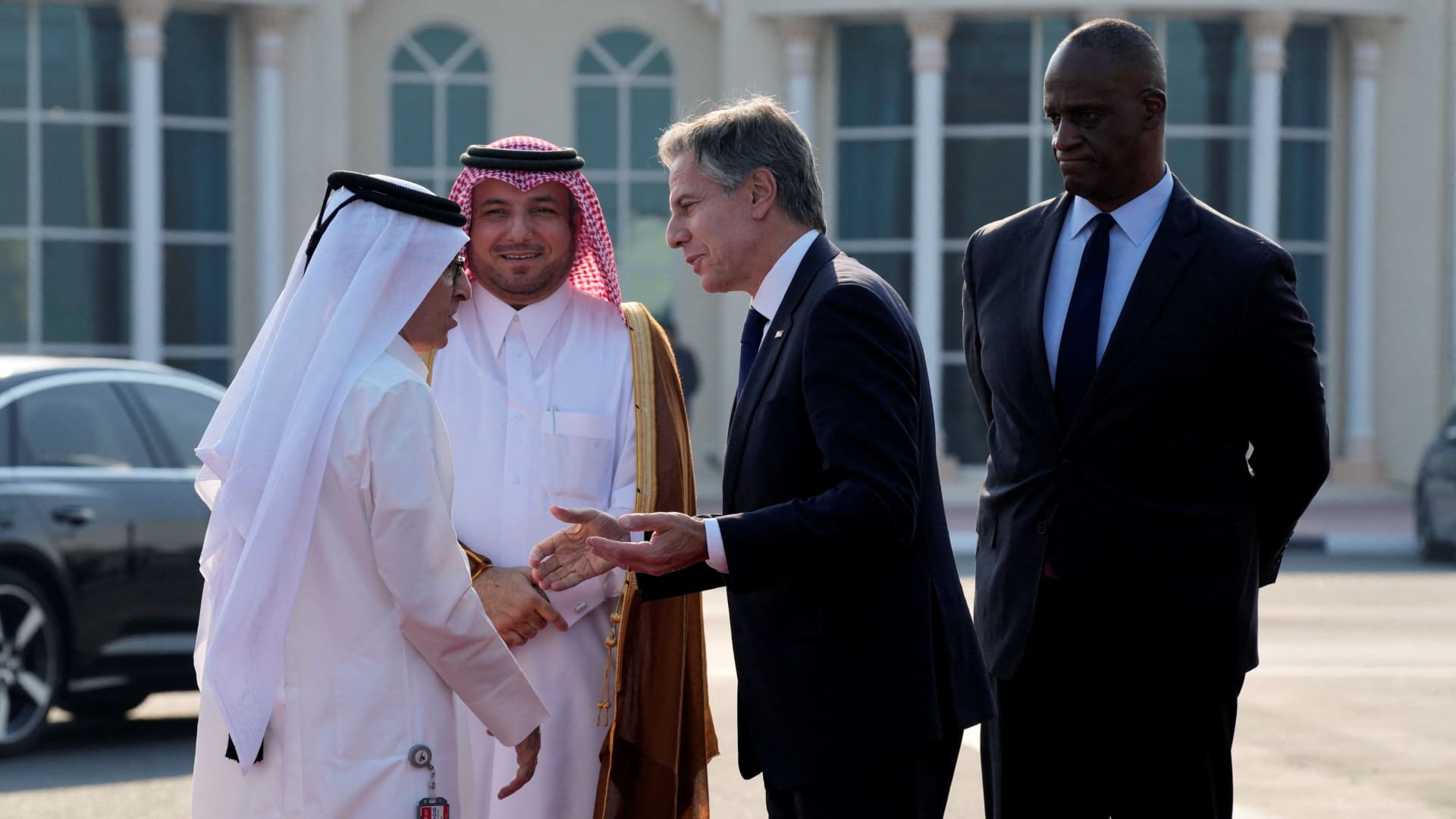Qatar is reconsidering its role as cease-fire broker between Israel and Palestinian militant group Hamas, the Gulf state’s prime minister said, expressing concerns that Doha’s mediation has been subject to “political exploitation.”
In a late-Wednesday statement, Sheikh Mohammed bin Abdulrahman Al Thani “lamented the political exploitation by some politicians with narrow interests, marketing their electoral campaigns through the defamation of Qatar’s role.”
He did not reference any politicians or states by name, but noted that Doha has observed the “misuse” of its mediation and “its employment for narrow political interests,” stressing that Qatar will undertake a “comprehensive evaluation” of its diplomatic position without indicating a timeline.
Earlier this week, U.S. Congressman for Maryland, Steny Hoyer (D-Md.) had issued a statement urging Qatar to “apply pressure on Hamas to accept a reasonable deal” for a temporary truce in exchange for the return of captives abducted by the Palestinian group during its terror attack of Oct. 7.
Since October, the Hamas-governed Gaza Strip has been ravaged by a retaliatory war campaign carried out by Israel.
“Hamas has also sought to use its intermediary Qatar – which has long helped finance, back, and house the terrorist organization – to exact greater concessions from Israel. Instead, Qatar needs to make it clear to Hamas that there will be repercussions if it continues to block progress toward releasing the hostages and establishing a temporary ceasefire,” Hoyer said.
“If Qatar fails to apply this pressure, the United States must reevaluate its relationship with Qatar.”
Qatar’s Embassy in Washington responded to Hoyer’s comments with a statement that Doha’s capacity as mediator “exists only because we were asked by the United States in 2012 to play this role,” adding that “blaming and threatening the mediator is not constructive, especially when the target is a friend and a Major Non-NATO Ally that presently hosts 10,000 U.S. troops and America’s largest military presence in the Middle East.”
Alongside the U.S. and Egypt, Qatar has been a critical diplomatic component of Israel’s negotiations with Hamas since October, helping clinch a brief cease-fire between Nov. 24 and 30 and the release of more than a hundred hostages. Yet Qatar’s relationship with Hamas has faced intense scrutiny — Hamas set up its political bureau in the Gulf nation in the wake of the Arab Spring uprisings of 2011, and the Palestinian militant group’s leader Ismail Haniyeh resides in Qatar. Doha denies sponsoring Hamas.
Qatar’s potential withdrawal from negotiations would come at a watershed moment in Middle East tensions, which were exacerbated over the weekend by the first direct attack from Iranian territory against Israel. On Saturday night, Tehran launched over 300 drones and missiles at Israel, whose military claims to have eliminated 99% of these threats with support from its international allies.
Iran — which backs Hamas, Lebanon’s Hezbollah, Yemen’s Houthi and the Syrian regime of Bashar Assad, all inimical to Israel — has said that the Saturday operation marked the end of its response to an Israeli strike that killed several commanders at an Iranian consulate in Damascus, Syria.
Arrested between retribution and urged to show restraint by international allies, Israel has vowed to “exact a price” for the Iranian offensive, but has yet to communicate its next steps.
Markets are following the developments of the conflict, which could come to envelop the broader Middle East region and have acute ramifications for oil prices and international trade. Already, Houthi maritime attacks have delayed or disrupted commercial transit through the Red Sea.





